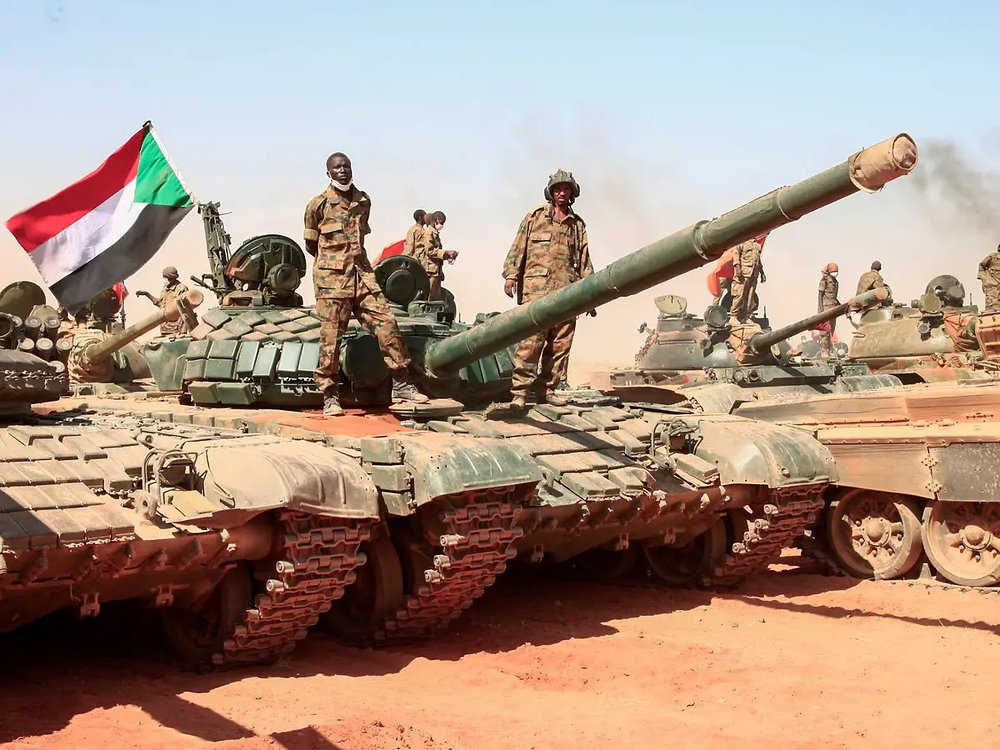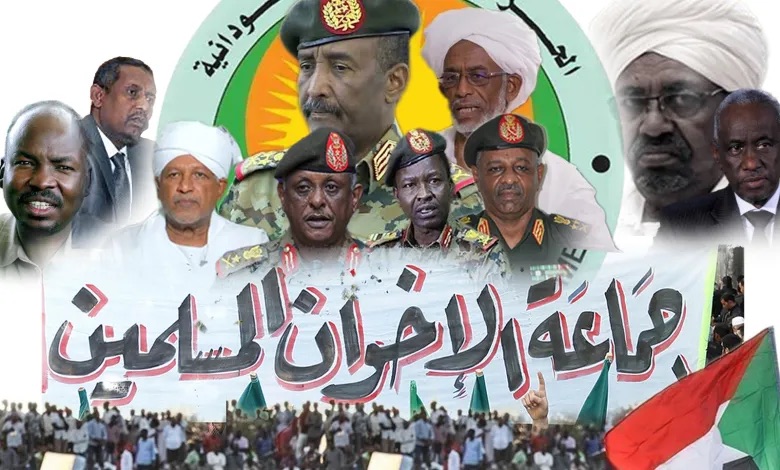
Sudan Signs $1.5B Arms Deal with Pakistan
Strategic Defense Partnership in Conflict
Sudan’s SAF junta regime has signed a $1.5 billion weapons agreement with Pakistan, strengthening its military as civil war intensifies. The Pakistani media announced the deal, which solidifies Sudan’s resolve to fight instead of negotiate.
More than half of the population is in urgent need of aid as a result of the war’s devastating effects, which include severe shortages of food, water, medicine, and aid access; widespread hospital closures; disease outbreaks; mass displacement; looting of humanitarian supplies; and the near-collapse of infrastructure and education.

Top Military Delegation in Islamabad
The agreement came after a visit to Islamabad headed by Lt. Gen. Pilot Al-Tahir Mohammed Al-Awad Al-Amin, commander of the Sudanese Air Force. Top officials of the Military Industry Corporation (MIC) and Sudan’s commander of air defense accompanied the visit. They met with Pakistan’s defense minister, chief of air force, and other top commanders.
Key Components of the $1.5 Billion Proposal
The $1.5 billion Pakistan arms sale includes an eclectic mix of platforms and systems:
- 10 K-8 Karakorum trainer/light attack aircraft
- 20 Shahpar-2 drones
- 150 YIHA-III UAVs
- 50 MR-10K UAVs
- 50 Ababeel-5 drones
- Engines for MiG-21 fighter jets
- 150 ASV Mohafiz armored vehicles
- The HQ-9 and HQ-6 air defense systems
Problem with the Sudanese Wishlist
However, the details regarding certain items in the package remain unclear. Pakistan does not operate the MiG-21, but it does have its Chinese copy, the F-7. That implies F-7 engines or whole aircraft could be transferred to Sudan under the deal.
Similarly, Pakistan does not produce the HQ-9 and HQ-6 air defense systems, which are Chinese. Analysts speculate Islamabad is reselling systems from its own inventory, maybe retiring older systems to make room for newer ones.
Financing and Geopolitical Implications
Reports indicate the $1.5B Pakistan arms deal could be paid for by a third party, probably the UAE or Chad, though, despite regional tensions, Egypt backs the SAF. This has implications for the foreign sponsors of Sudan’s war.
The arrangement clearly signals General al-Burhan’s choice to boost combat power rather than pursue peace talks. Meanwhile, for Pakistan, the agreement highlights its growing role as a defense exporter to Africa, supplying UAVs, armored vehicles, and aircraft. Moreover, it reflects Islamabad’s ambition to position itself as a trusted arms supplier well beyond South Asia.

Conclusion
The $1.5 billion Pakistan arms sale highlights Sudan’s drive to strengthen its military power. While parts of it—such as the MiG-21 engines and Chinese air defense systems—are generating technical difficulties, the sale solidifies a major defense partnership between Sudan and Pakistan during a period of war.
References
- https://www.defensenewstoday.info/
- https://propakistani.pk/
- https://www.dawn.com/
- https://www.reuters.com/
- https://www.thinknewsonline.com/post/pakistan-secures-1-5-billion-defense-deal-with-sudan
- https://assayha.net/en/161948/
- http://thesudantimes.com/sudan/al-burhan-inks-1-5b-arms-deal-with-pakistan-amid-ongoing-conflict/









